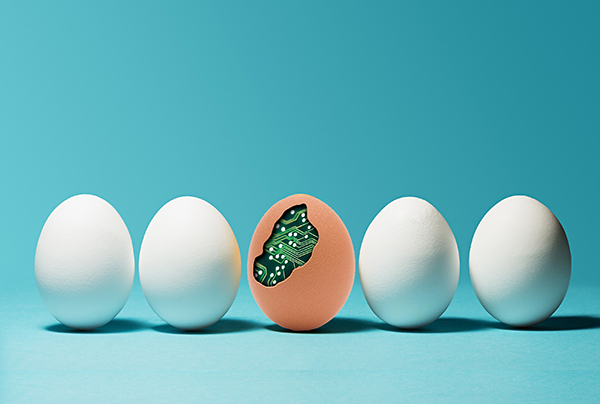Artificial intelligence (AI) has permeated nearly every sector of modern life, and the food sector is no exception. From product development to supply chain management, AI is being touted as a tool for efficiency and innovation.
However, new research suggests that consumers remain deeply sceptical about AI’s role in food production, raising serious questions about transparency, safety, and trust.
A recent survey commissioned by Ingredient Communications and conducted by SurveyGoo found that 83% of respondents believe food and beverage companies should declare if a product has been designed or manufactured with the help of AI technology. More than half (55%) agreed strongly with this assertion, while only 4% opposed it altogether.
Transparency is a cornerstone of consumer trust, and these findings suggest that many shoppers feel uneasy about AI’s involvement in the food industry. This is particularly evident in the way consumers perceive food products made with the help of AI – 64% stated that these products should not be labelled as ‘natural.’
Is AI-Generated Food Safe? Consumers Aren’t Sure
The survey results also highlight concerns about food safety. Nearly half (44%) of respondents said they believed that a food or beverage product made with the help of AI might be less safe to consume. However, they were split on whether they would be more or less likely to buy a food or beverage product made with the help of AI. Just over a quarter (26%) said they would be more likely to do so, with 29% stating they would be less likely.
This scepticism is a growing trend. Consumer trust in the food system has dropped in recent years. A 2024 study of nearly 20,000 consumers across 18 European countries found that less than half (46%) said they trusted food manufacturers in terms of competency and openness – down from 48% in 2021 – while 27% said they actively mistrusted them. Against this backdrop of distrust, AI’s presence in food production – often perceived as opaque and unregulated – could further erode consumer confidence.
Regulation and accountability
The Ingredient Communications/SurveyGoo survey also found strong support for regulation. 78% of respondents agreed that the Government should introduce laws controlling the ways food and drink companies can use AI technology to design and manufacture their products. Just 6% disagreed with this.
Richard Clarke, Managing Director of Ingredient Communications, commented: “Many food and beverage companies have rushed to embrace the benefits of AI technology but it’s important they take care to consider how consumers feel about this. We’ve seen a huge backlash against AI in the arts and entertainment business. To avoid the same fate, food and beverage manufacturers should pause to reflect on whether they are being sufficiently transparent about their use of AI.”
He continued: “As we saw 30 years ago with the furore over the safety of genetically modified crops, it’s easy for misinformation to spread and stir up fear. Food and beverage companies would be wise to implement a communications strategy to ensure the public is kept informed about the ways in which they harness the power of AI tech.”
AI and cost-cutting
AI is being pushed under the narrative of greater efficiency. Indeed, another recent survey of 376 senior executives of food and retail companies found that 57% of companies saw revenue increases of 6-10%, and 30% reported growth exceeding 10%.
Another likely impact of increased use of AI in the food system is cost savings for manufacturers. Consumers are aware of this, with 79% of survey respondents stating that any cost savings from use of AI should be passed down in the form of lower retail prices.
However, sentiment shifted if this came at the expense of employment, with 40% considering it unacceptable if the use of AI technology to design and manufacture a food or beverage product meant somebody lost their job – even products were cheaper as a result.
Getting it right
These surveys suggest that consumers are not willing to blindly accept AI in their food. To avoid the missteps that have dogged food-tech innovations like genetic modification, companies must address transparency, regulation and ethical concerns associated with the technology at the earliest part of the development process. The industry should proceed with caution, or risk further eroding the already fragile trust of consumers in the food system.

